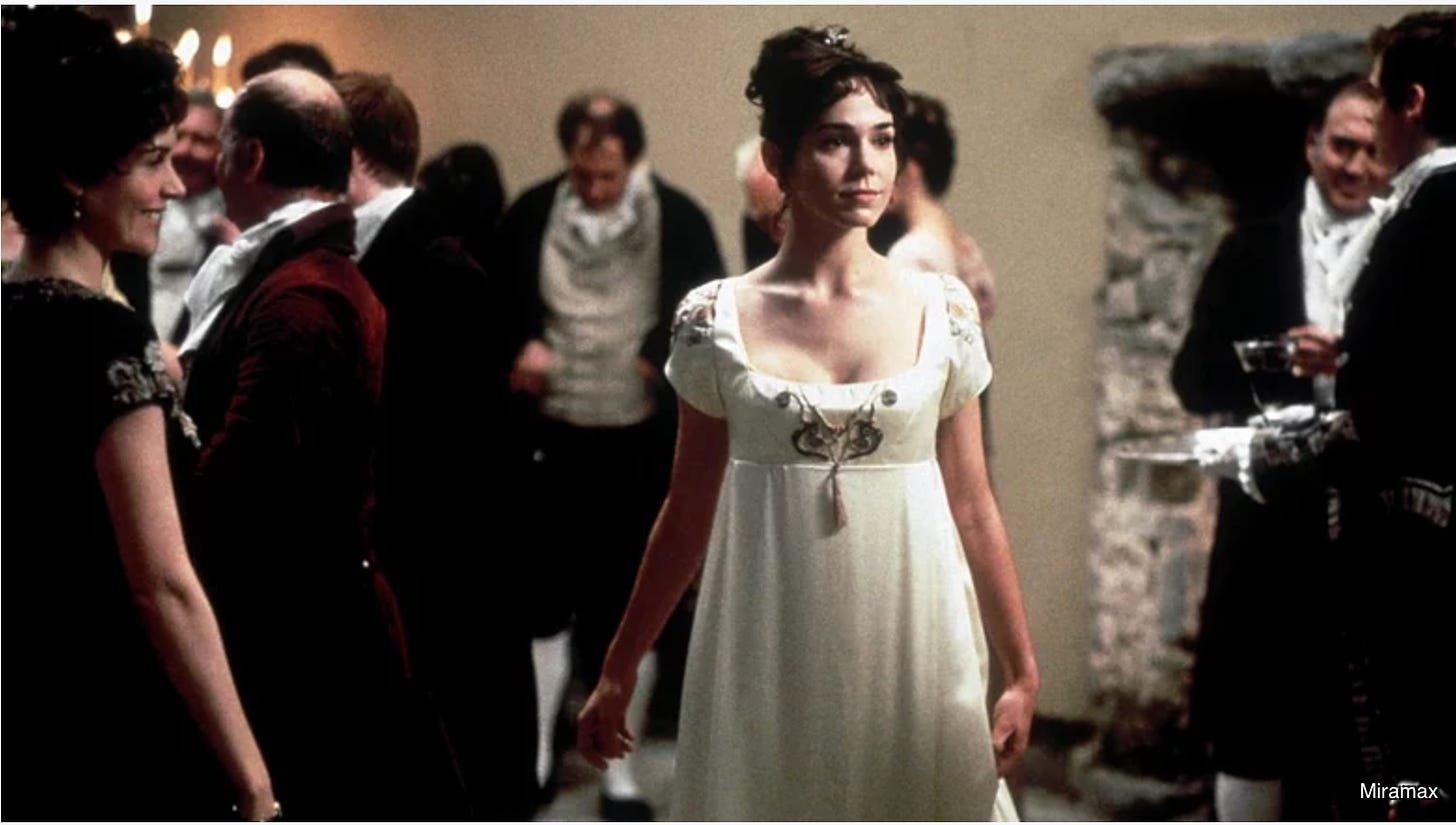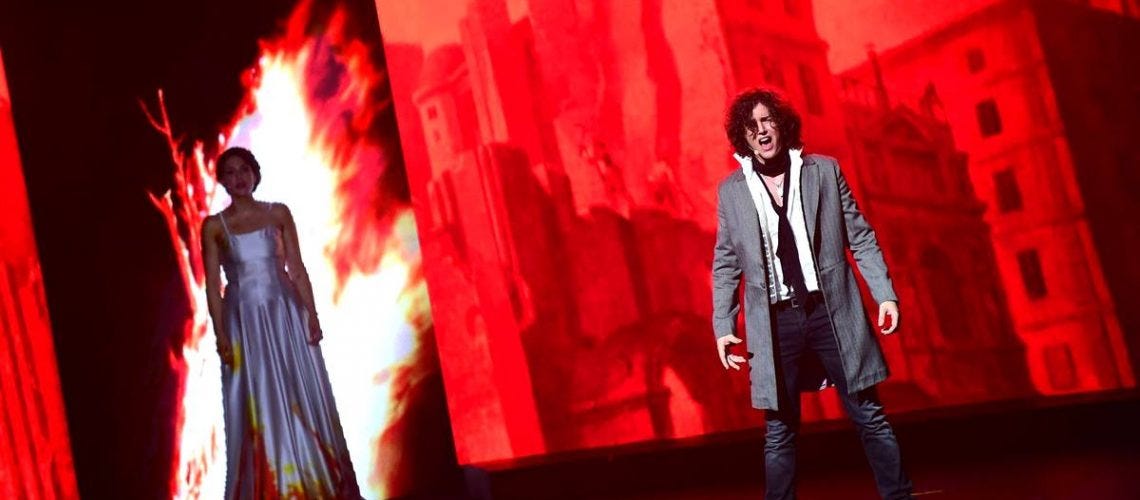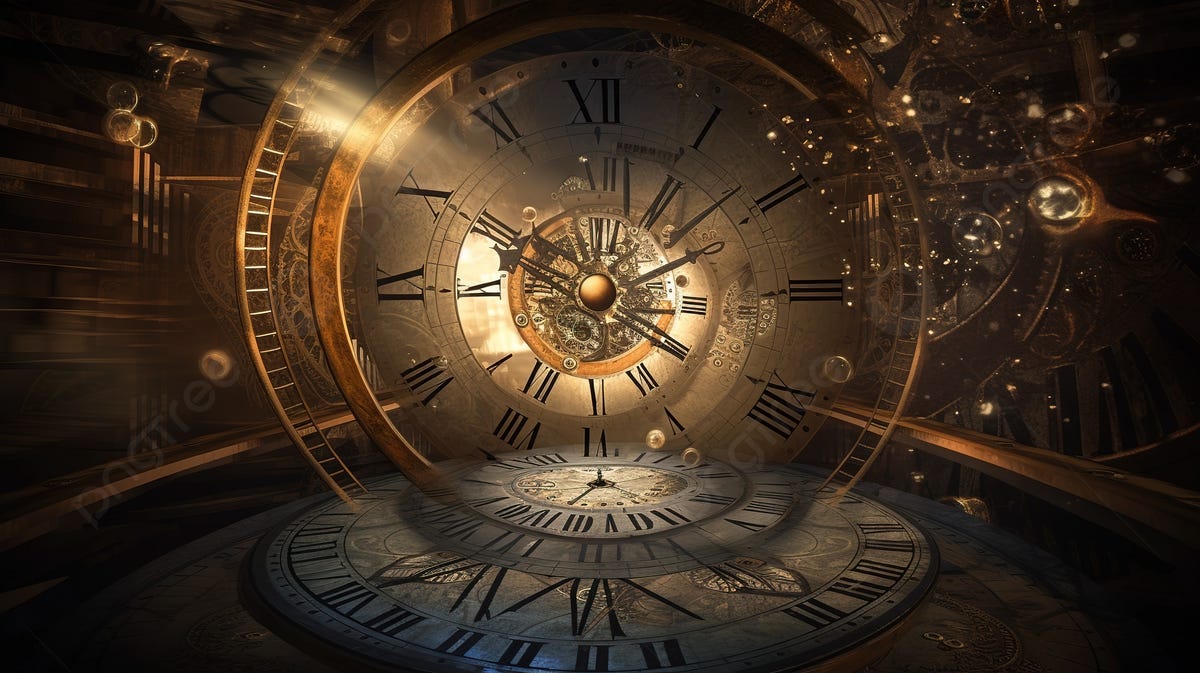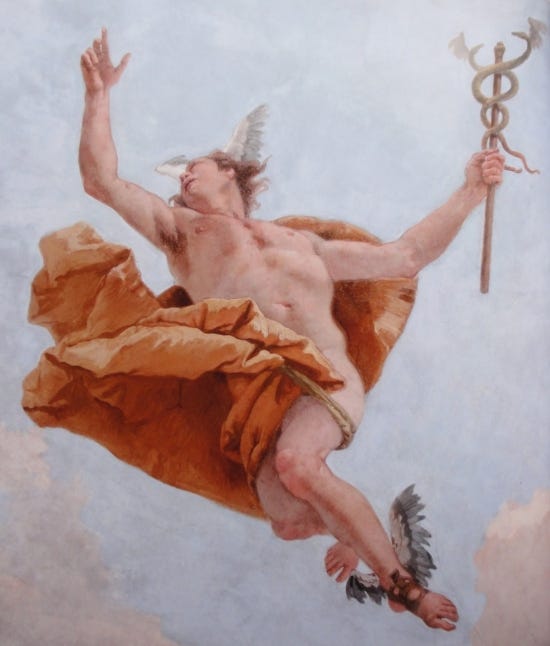Time Travel - Part 2 of 2
Literary works clue us into influence and agency of the past; trends and predictions illustrate the difficulty to imagine the future.
With mini-series, free subscribers receive post previews. Supporters receive the full articles and insights. Welcome to all paid supporters.
Part 1 of time travel—Why we can't see the past for what it was and imagine the future for what it could be.
Part 2 of time travel—Literary works clue us into influence and agency of the past; trends and predictions illustrate the difficulty to imagine the future.
Our fascination with time travel probably comes from our desire to influence the place where science meets human experience. Or maybe we want control, agency, over the one thing that sets our lives in stone and rules our days and lives—time.
H.B. Wells popularized the concept of time travel using a machine with a novella in 1895.1 At the turn of the century, the short story provided a mix of scientific speculation, sociological parable, compelling adventure, and philosophical meditation.
It’s also a good demonstration of how we project our fears into the future. Time travel has become a common theme in fiction since the 19th century. Charles Dickens’ 1943 A Christmas Carol was the first novel to include travel to the past and the future.2
If we’re not in a machine, we simply slip through time. And that’s exactly what happened to Hank Morgan, from Hartford, Connecticut, when he got hit in the head by a crowbar and woke up in 528 at King Arthur’s Court.3
Do literary accounts of historic events neutralize or boost social, political, or scientific outcomes?
French novelist Jules Verne can help us with (literally) a deeper dive into the future that predates business trend reports and predictions. His fictional novels depicted a substantial list of inventions that predated the invention of the submarine, the helicopter, the modern city, and Moon exploration.4
Can our attempts at future prediction stray from established (or feared) paths?
Reminder: You can get extra insights—in-depth information, ideas, and interviews on the value of culture.
Join the premium list to access new series, topic break-downs, and The Vault.
The ancient Greeks distinguished two kinds of time—kairos, opportunity or the propitious moment, and chronos, the eternal and ongoing time. While the first offers hope, the second is a warning. A time of clever moments and a time of wisdom.
Mercury (Hermes for the Greeks, Turms for the Etruscan) was associated with kairos—fluid as quicksilver, and just as poisonous. He’s the god of financial gain, commerce, eloquence, messages, and communication; protector of travelers, boundaries, and luck.
But also fellow to trickery and thieves—the guide of souls to the underworld, should we need one.
Related mini-series: War in Literature
Part 1 of 2—A literary exploration into the tragedy of war and the horror that dwells in human hearts since way before the 7th century.
Part 2 of 2—Is war inevitable? Is violence intrinsic to human nature?
St. Augustine, Heidegger, and Kant also got close to a definition of time that saw the universe as a series of events. It’s all relative, according to Einstein. And it is. Every point on the curve of our universe has its own particular ‘time.’
Which explains why now is meaningless—the relationship between every point can never intersect with the others. Everything is past or future and even that is all perception.
To Aristotle, time is the measurement of change. “If it is dark and our bodily experience is nil, but some change is happening within the mind, we immediately suppose that some time has passed.” (Physics)
If nothing moves, there’s no time. It might seem obvious, but time travel implies movement.
Physicists are still on the fence, however, on whether it’s possible to travel back in time. Igor Dmitriyevich Novikov’s self-consistency conjecture states that you can travel to the past, but you cannot change it.
Can we understand better what we cannot change?
Perhaps the most visible attempt at cultural revision was the veneer that writers and composers put on colonial places and events. Operas of the period paint a subjective veil of glory on the human experience.
And nowhere are there more examples of the tension than in the novel. Joseph Conrad’s Heart of Darkness is both a subjective dramatization of the adventures of a Polish expatriate in British colonies and a testament of British business in the 1890s.
Jane Austen’s Mansfield Park is a testament to the moral and social values we can find in all her novels. Perhaps the novel is among the least favorites of Austen because it establishes the structure of attitude and reference for the rest.

The very odd combination of casualness and stress in the story and people assumes the importance of the empire—Mansfield Park requires overseas sustenance. But we do feel the weight of the British sense of mission toward its colonies.
Charles Dickens’ 1861 Great Expectations casts its sights on Australia. It’s a story of self-delusion in a country plagued by the pursuit of profit and social apartheid. There’s no shortage of villains in the novel. Pip, Mr. Magwitch, Ms. Havisham, and Estella are also memorable characters in this story of redemption.
Perhaps the best example of the effects of British rule in a country we can find is Rudyard Kipling’s Kim. In a detailed portrait of the people, culture, and varied religions of India Kipling, a native of Bombay, offers a broader conception of life in the colonies.
In a luxurious spatial geography, we have the illusion time is on our side. Kim speaks and understands many languages—Urdu, English, Eurasian, Hindi, Bengali; he understands Pushtu, Chinese, and Tibetan.
By contrast, Kipling’s peers in France—Flaubert, Zola, Proust, and early Gide—make their novels works of disillusion and disenchantment. Their tight, unforgiving temporal structure compares unfavorably with the expansiveness of Kim’s world.
Time is the great ironist, almost a character in these novels.
It drives the protagonist further into illusion and derangement. It reveals the illusion to be groundless, empty, bitterly futile.
France’s empire had a less secure identity and presence in culture, which was free from the weighty, almost philosophical sense of mission we find in the British. The political and societal change brought about in France from 1789 to 1799 ed to the abolition of the Ancien Régime.
With the Napoleonic era, the French Revolution created a reversal of policy, loss of colonies, and insecurity of possessions. The shifts in philosophy are palpable in the period’s literature.

German composer Ludwig van Beethoven initially wrote the Symphony N.3 Eroica for Napoleon Bonaparte. They were both what society of the time considered commoners who rose to fame and renown. Then Napoleon crowned himself emperor and the focus changed. Beethoven resented aristocrats—he felt artists were more important to society.
However, Stendhal’s young men are incomprehensible without Napoleon.
Julien Sorel in La Rouge et le Noir reads the general’s memoirs with their fitful grandeur, sense of Mediterranean dash, and impetuous arrivisme. In contrast, Sorel lives in a France marked by mediocrity and scheming reaction.
These are just a few examples. Works of art participated in the unquestioned realities of their societies. And the novel was immensely important in the formation of imperial attitudes, references, and experiences.
They were the aesthetic object connected to the expanding societies of Britain and France (and later America.)







